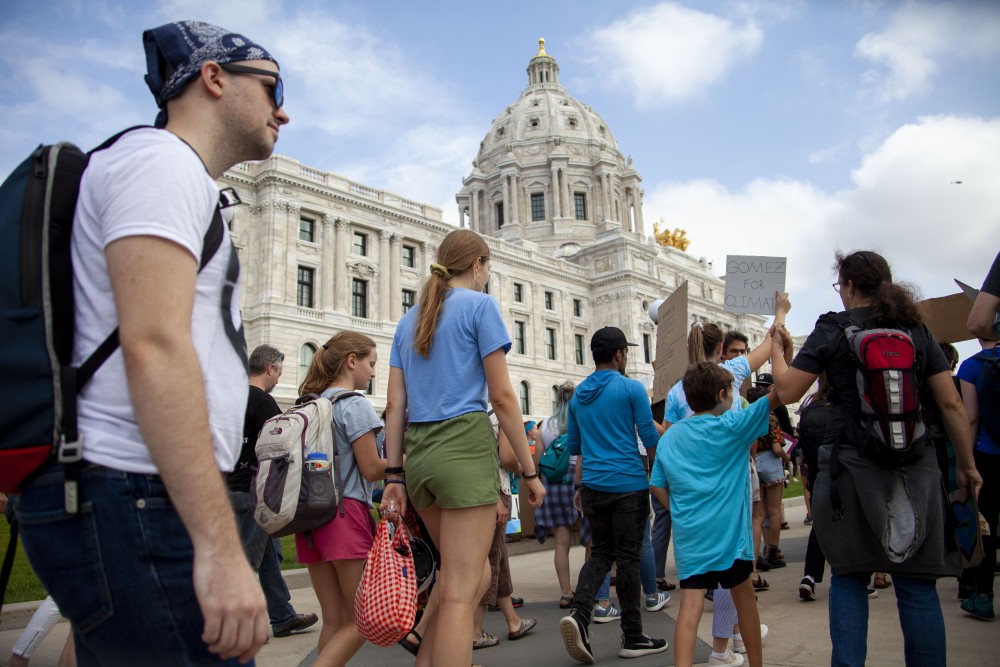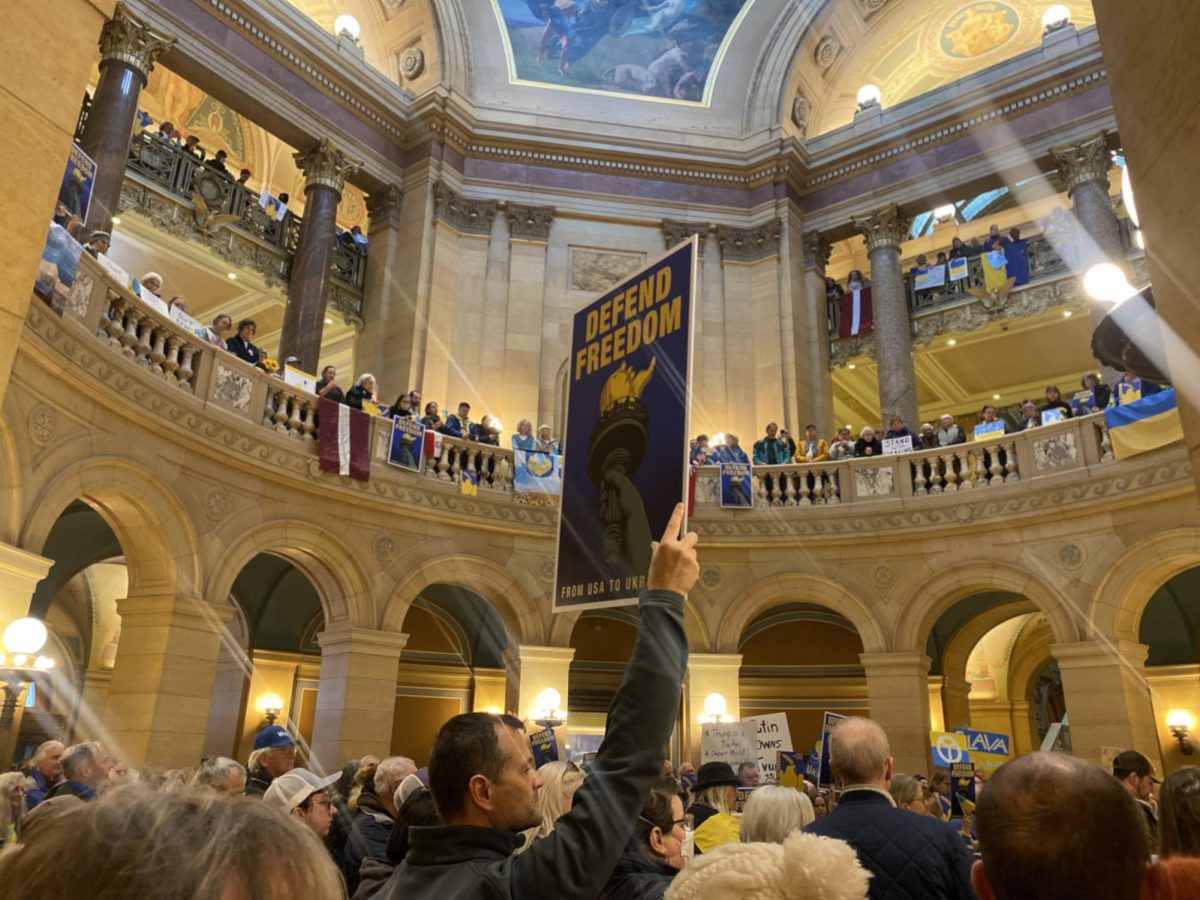A University of Minnesota student group is calling on the school to do more to address climate change.
University of Minnesota Climate Strike met with lawmakers and administrators Friday to lay out a list of demands. The group insists the University divest from fossil fuels and establish more curriculum around the topic, among other actions.
Climate Action Caucus meeting
The student group met with lawmakers as part of a joint meeting between the House higher education committee and the newly-formed Climate Action Caucus. The joint committee heard testimony and discussed issues related to climate change with administrators, faculty and students from colleges and universities statewide.
University of Minnesota Climate Strike’s demands for the University include declaring a climate and ecological emergency, developing an environmental justice major and discontinuing investment in fossil fuels.
“We’re personally frustrated with the University’s focus on sustainability and focus on individual action by students on campus to reduce emissions and to make change, and that we don’t really talk about the systemic ways that the institution of the University of Minnesota can make change,” said Savannah Wery, a co-founder of the group.
University Vice President for Research Chris Cramer outlined several ways the University is attempting to address climate change. In the last 12 years, the University established the Institute on the Environment research program and various undergraduate and graduate climate-related areas of study.
Cramer also pointed to sustainability efforts in the University’s operations and facilities. The Climate Action Plan implemented by former-University President Eric Kaler in 2011 aims to reduce carbon emissions by 50 percent by 2020 and offset 100 percent of emissions by 2050.
As of 2018, the University has reduced emissions by 37 percent on the Twin Cities campus and 32 percent system-wide, Cramer said.
“Climate change is real. It affects our state, it’s affecting our University too — our students, their families [and] our facilities,” Cramer said at the meeting.
Divestment meeting
Representatives from multiple student groups, including University of Minnesota Climate Strike, also met with staff from the University’s Office of Investments and Banking Friday.
With help from an independent financial adviser, the groups discussed the feasibility of divestment from fossil fuels with Stuart Mason, OIB associate vice president and chief investment officer, and Andrew Parks, OIB senior director of investment strategy and research.
Mason and Parks explained the University’s investment process and more sustainable initiatives OIB is already taking part in, like excluding coal in their portfolio. The two administrators also discussed how hiring managers to specifically divest from fossil fuels would be more expensive.
Mason said that while OIB would always be looking for cleaner options, there was only so much the department could do to make large strides towards sustainability without involvement from the Board of Regents.
Students said they felt frustrated over the lack of information available to students, including some of the University’s investment portfolio, which is not subject to Freedom of Information Act laws.
“There were times when I personally felt … it was like tense and uncomfortable … But then there were other times when it seemed like he was really genuinely willing to work with us and hear us out,” Wery said.
Friday’s events were part of a larger movement on campus to address climate concerns. Other actions included a climate strike on the St. Paul capitol building in September and an on-campus protest in December.
Going forward, Wery said the group will look to balance policy discussions with administrators and mobilizing students. The group will participate in Fossil Fuel Divestment Day on Feb. 13, which lines up with next month’s Board of Regents meeting.
“We are the ones affected by the decisions the Board of Regents makes, and our generation is the one who will have to deal with the consequences of climate change that our University is currently contributing to,” said group member Zach Fisher in his testimony in front of lawmakers.








